The Cultural Ecology seminar programme will unite activist-academics working across the arts to interrogate the following question: ‘How might cultural researchers galvanise more urgent and effective responses to the climate crisis to remedy the severe inadequacy of the actions currently being set into motion by governments and corporations?’
The anthropologist Julian Steward (1902-1972) coined the term ‘cultural ecology’ to describe the ‘ways in which culture change is induced by adaption to the environment’. Developing this definition in the light of discourse on the Anthropocene, and referring more specifically to ‘culture’ as expressly manifested in artistic works, this seminar series will conceive of ‘cultural ecology’ as an interdisciplinary banner to unite and mobilise researchers who share the conviction that radical and widespread cultural change is vital to combat the climate emergency.
This definition implies a deconstructed understanding of ‘cultural ecology’ in terms of the phrase’s two literal denotations:
- culture as ecology—a realisation that culture is relational and therefore mutable as it is determined by the dynamic interaction of humans with each other and the environment.
- ecology as culture—an understanding that ecology is increasingly anthropogenic as it is determined by the ideas, customs and behaviours of humans and how they interact with the environment.
When considered in tandem, these two meanings highlight the significant potential of artistic works—as focused expressions of broader cultural conditions—for inspiring the development of more sustainable ways of being.
The series of eight weekly events will spotlight researchers who collectively represent the scope of the arts, including: art history, fine art, curating, architecture, dance, music, literature, poetry, film and photography. Contributors will be chosen who prioritise eco-political praxis and embrace exchanges with scientists and activists.
See the programme of events below:
- 1 March 2021, 13:00-14:00 - Reimagining Museums for Climate Action: An Ecological View
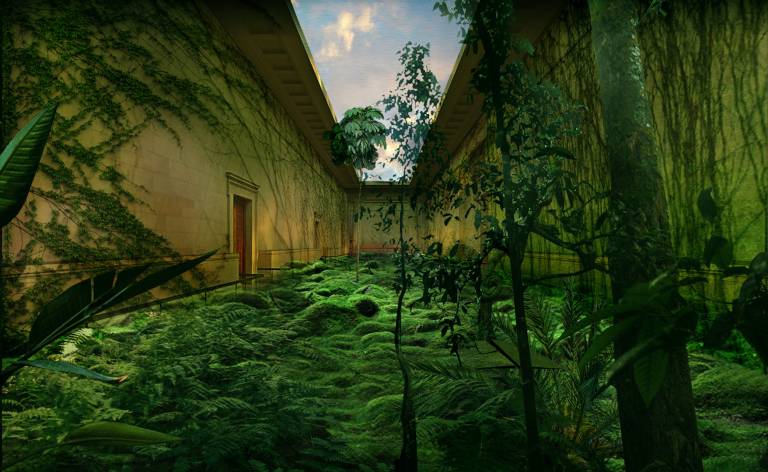
A seminar led by Dr. Colin Sterling (University of Amsterdam).
This talk will provide an introduction to the main themes and questions underpinning the Reimagining Museums for Climate Action project: an international design and ideas competition and associated exhibition to be hosted at Glasgow Science Centre ahead of and during COP26. Rather than focus on one specific type of institution or context, the RMCA project takes an expansive view of the museum field, asking how radical change in the sector might contribute to and inspire broader forms of climate action across society. Central to this is the idea that museums are ecological entities in their own right: complex eco-systems made up of human and more-than-human processes, forces, materialities and possibilities. Thinking about museums ecologically to address the climate crisis means considering everything from curating and conservation to recruitment and retail. It also means recognising that museums are densely entangled with wider social, cultural, political and environmental phenomena, from colonialism and capitalism to urbanisation and extractivism. As a quintessentially modern apparatus, the emergence and spread of the museum around the world tracks broader patterns of social injustice and ecological collapse. More recently however activists, Indigenous groups and grass-roots organisations have lobbied and mobilised museums globally to support more just and sustainable futures. Reimagining Museums for Climate Action responds to this critical conjuncture, where simultaneous calls to decolonise and decarbonise speak to a generational demand for lasting systemic change.
Image caption: The British Museum of Decolonized Nature. © John Zhang
- 8 March 2021, 13:00-14:00 - Ecologies of Grief: Narratives of Covid, Climate and Care
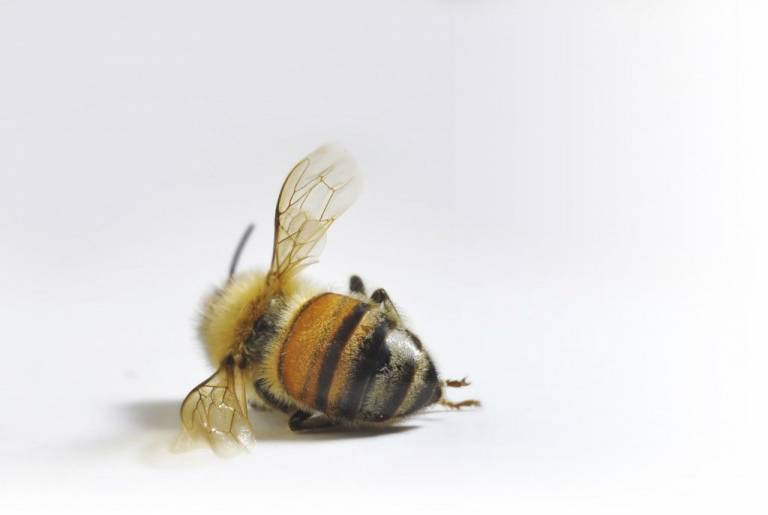
A seminar led by Prof. Florian Mussgnug (UCL, SELCS).
This lecture explores twenty-first century narratives of loss and mourning and calls for an ecological re-thinking of grief and of the literary genre of elegy. I challenge the widespread view that present-day attitudes towards death leave little room for the work of mourning, and have moved away from the idea of reading and writing as a prolonged, transformative encounter with grief. It is frequently argued that contemporary culture, in the global North, offers a stark choice between melancholia and resilience: it either depicts loss as an open wound that remains forever fresh and raw or assumes that grief can and must be resisted. Against these assumptions, I suggest that the COVID pandemic has been a powerful reminder of the omnipresence of death, but also of the inexhaustible, generative force of human and more-than-human communities, and of the strength of social ties. People have responded to hardship and to the prospect of mass death with purposefulness, immediacy, and surprising creativity. On this basis, I argue that expressions of grief are communal and therefore best understood in ecological terms. We, the heterogeneous, more-than-human mortal denizens of this living, symbiotic planet, live, grieve and die in the company of others, share our time and vulnerability with them and exist in need of their care. The lecture expands on this idea in relation to climate change and environmental degradation and specifically with a focus on apian stories, i.e. twenty-first century fictional and non-fictional narratives of bees, beekeeping and colony collapse disorder. These cultural practices, I suggest, take us beyond solitary grief and help us engage with mass death, not as an unspeakable apocalypse-to-come but as a maker of the fundamental unpredictability of post-holocenic societies and ecologies.
- 15 March 2021, 17:00-19:00 - The Disappointing Apocalypse: Visualising Climate in Art Since the 1960s
- A seminar led by Prof. Andrew Patrizio (University of Edinburgh), hosted in collaboration with Past Imperfect.
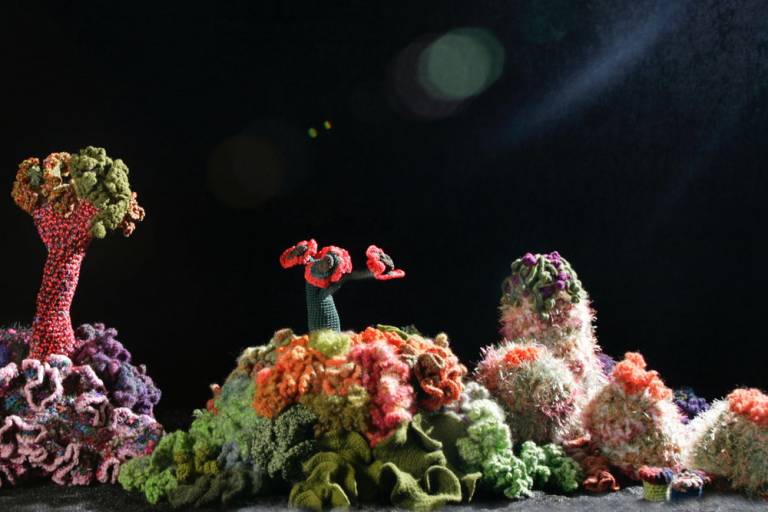
Much of Andrew Patrizio’s recent writing and teaching has promoted the value of art history to represent and resist the climate crisis. His work, alongside a rising number of other scholars and artists, seeks to mobilise the discipline to make visible and tangible the conditions of the Anthropocene.
This talk is based on a work-in-progress chapter exploring the complex relationship between the idea of eco-apocalypse and visual art practice since 1960. It will offer a picture of the current apocalyptic condition as deeply undramatic and, in that sense, disappointing.
‘Apocalypse’ has been depicted by numerous artists globally (from medieval manuscript illuminators to the Romantics), first as a visualisation of Christian doctrinal warning and then more generally as a cultural trope for a variety of apocalyptic forms (nuclear war, migration, racial tension, famine). Climate collapse, global warming, pollution, toxicity and plastic proliferation, genetic mutation and viral spread are recently ecologically-framed manifestations on a similar register. These formations are worked on by artists, particularly those employing systemic, critical, relational and conceptual approaches. The disaster is now materially unfolding and seems disappointingly unconcerned with redemption and human futures, whilst being at the same time entirely caused by industrialised humans (expressed through resource depletion, rising waters and mass extinction). It is now difficult to imagine in the visual arts the notion of apocalypse without registering the material presence of climate crisis.
Among the art practices discussed will be Helen Mayer and Newton Harrison, The Lagoon Cycle (1974-1986), Ursula Biemann, Black Sea Files (2005), Trevor Paglen, The Last Pictures (2012), Moon Kyungwon and Jeon Joonho, El Fin del Mundo (The End of the World) (2012) and Margaret Wertheim and Christine Wertheim, Crochet Coral Reef (2005-ongoing).
Image caption: Crochet Coral Reef by Christine Wertheim and Margaret Wertheim and the Institute For Figuring (2009). Photo © IFF by Alyssa Gorelick.
- 22 March 2021, 13:00-14:00 - Earth Logic: Radical Sustainability Action for Transforming the Fashion Sector and Beyond
- A seminar led by Prof. Kate Fletcher (London College of Fashion) and Prof. Mathilda Tham (Linnaeus University, Sweden).
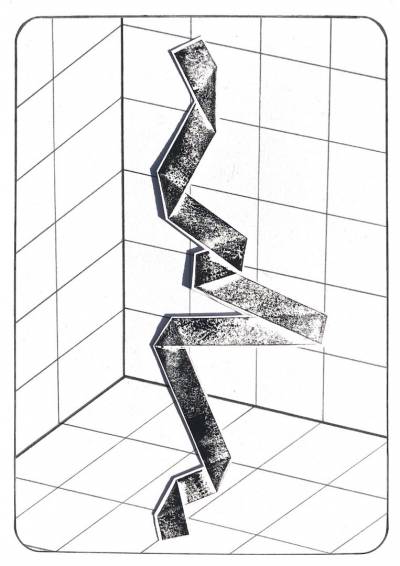
Earth Logic is a radical framework for sustainability change using systems thinking. To date it has been applied in a number of contexts, most notably the fashion sector, and since its launch at London Fashion Week 2020 it has reached more than a million people. In this seminar we will examine how we can direct conversation and action directly at the level of the paradigm, where the purpose of a system is set. We will explore the six holistic Earth Logic landscapes and how the value of care can transform relationships between humans, more-than-human species and the material world.
Image caption: Katelyn Toth-Fejel and Anna Fitzpatrick courtesy of Earth Logic.
- 30 April 2021, 13:00-14:00 - Choreography as Climate Action: Inspiring the Environmental Movement Through Dance
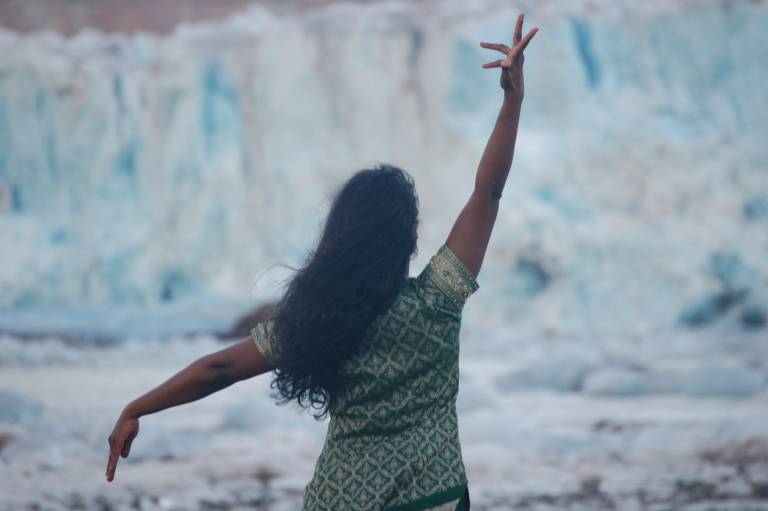
A seminar led by Subathra Subramaniam—choreographer, dancer and educator.
In this talk, Suba will share her experiences of working through dance to inspire climate action, and will discuss the importance of collaborating with scientists and working with youth activists to her practice.
Suba is the Artistic Director at Akademi—the UK’s leading South Asian Dance organisation. Suba was Co-Education Director of Cape Farewell—an international not-for-profit programme working to bring creatives, scientists and informers together to stimulate a cultural narrative that will engage and inspire a sustainable and vibrant future society. Suba was Artist in Residence at the Environment Institute at UCL, where she worked closely with climate scientists to investigate the value of dance as a means of raising awareness of climate change. She is also a trained secondary science teacher.
- 10 May 2021, 13:00-14:00 - Archaeology of Sacrifice: Mobilising Collaborative Artistic Practice Against Extractivist Violence
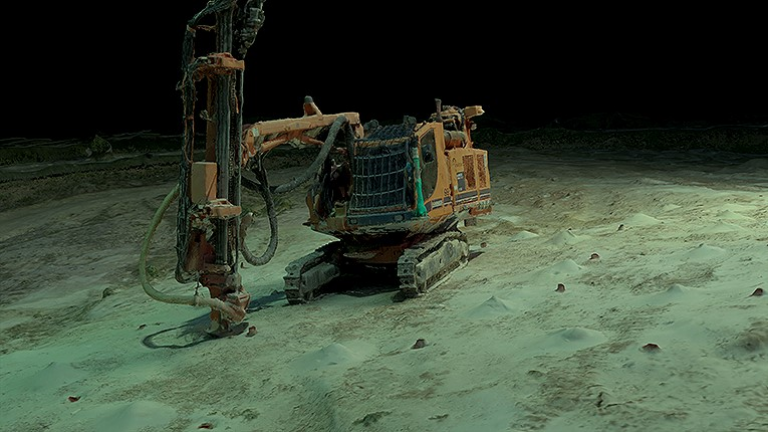
A seminar led by artist and researcher Dr. Ignacio Acosta.
This lecture will explore the political ecology of mining across the globe. The excavation, extraction and exploitation of minerals – justified by the promise of immediate accelerated economic growth – means that spaces inhabited by communities become ravaged by desertification, contamination and expropriation, and sites of political and environmental dispute. I will hone in on ways in which local and transnational acts of resistance are making use of technologies (such as drones) in order to monitor the impacts of extractive industries and develop micropolitical strategies. These interventions position geological and technological forms, as well as human and non-human relationships, in the same landscape. I will focus on collaborative working methodologies as an important, indeed essential, strategy in the investigation and representation of sites impacted by extractive violence.
This lecture will delve into the research process of my most recent project “Archaeology of Sacrifice” (2020). Through the discovery of a Celtic sacrificial site at Mormont Hill – a limestone and marl quarry located in the Swiss canton of Vaud – the two-channel video installation with surround sound design unveils how the notion of sacrifice has transitioned from ancient sacred rituals to its contemporary meaning within extractive capitalism. In a continuous interplay between fact, fiction and scale, meditative landscapes of typically inaccessible areas are juxtaposed with archival footage, drone views, investigative close-ups and photogrammetry-based 3D modelling. While acknowledging the Anthropocene is built on an erasure of its racial origins, “Archaeology of Sacrifice” reflects on the precariousness of our planet and its unsolicited submission to humanity.
Please see a teaser of the video here. A link to the video work will be sent to ticket-holders prior to the lecture.
The “Archaeology of Sacrifice” project was developed as result of the Scholarship of the ZF Art Foundation, Friedrichshafen, Germany, filmed during Principal Residency Program, La Becque Résidence d’artistes, La-Tour-de-Peilz, Switzerland, and presented at the Zeppelin Museum. It was created in collaboration with film editor Lara Garcia Reyne, artists Valle Medina and Benjamin Reynolds (Pa.LaC.E), writers Carlos Fonseca and Ellen Lapper, sound designer and composer Udit Duseja, and colourist Paul Wills. It includes archival footage from the documentary "Crépuscule des Celtes" (2007) by Stéphane Goël, Climage.
The catalogue of “Archaeology of Sacrifice” is available at The Photographers’ Gallery bookshop.
Image: CG visual of a mining excavator under water using photogrammetry-based 3D modelling technology. Developed in collaboration with Valle Medina and Benjamin Reynolds (Pa.LaC.E). Still from ‘Archaeology of Sacrifice’ (2020), Ignacio Acosta.
- 17 May 2021, 13:00-14:00 - Listening, for a better world! Why sound, and the art of listening, hold the key to solving environmental crises
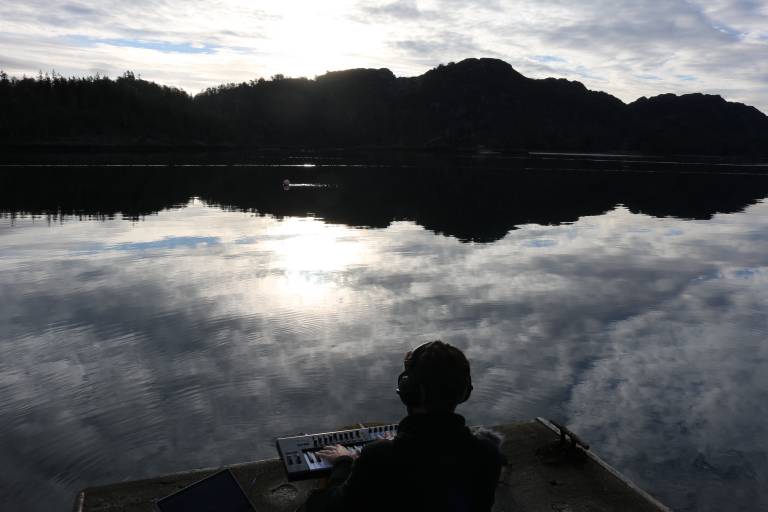
A seminar led by Harry Coade and Dr. Mike Edwards of Sound Matters.
In this seminar, Harry and Mike will discuss the reasons why they have dedicated their lives to creating an organisation that uses sound, and the art of listening, to address environmental challenges such as climate change. Through a discussion of their personal journeys in the art of music making and climate change research, they will show why they think sound and listening hold the key to finding new ways of imagining futures where the human and more-than-human worlds can flourish.
A central theme of the seminar will be an exploration of why creating an aesthetic around environmental crises is key to solving them. The seminar will challenge some of the dominant discourses of climate change, and broader environmental narratives, to explore the possibility that most mainstream approaches to addressing the crises we face are unlikely to succeed because they are based on technological hubris, rather than love, empathy and connection.
Drawing on their experiences of soundscape analysis, Harry and Mike will explore the power of sound for connecting people to the processes shaping the world. In addition, they will introduce a concept called Systems-Based Listening which they have developed to help restore degraded landscapes in southern Spain.
The aim of the seminar is to show that sound and listening have the capacity to create cultural change – the sort of change that is needed if threats, such as the climate crisis, are to be addressed. The type of cultural change that is required cannot be achieved through science and technology alone; it requires the ‘dirt’ and ‘mess’ of the human condition which is best represented, and expressed, through the arts.
Supplementary material:
Sound Matters website: https://www.sound-matters.com/
Sound Matters introductory video: https://vimeo.com/478009616
Audio report about project in Spain: https://soundcloud.com/soundmattersproject/the-sound-of-resilience-sound-matters-audio-report-23_01_19-1
E-Composer: https://soundcloud.com/soundmattersproject/soil-composer-mood-board
EP from project in Spain: https://soundcloud.com/soundmattersproject/sets/the-soundscapes-of-resilience
Soundbites: #1 STORIES; #2 FREE WILL; #3 THE SOUNDSCAPE
- 24 May 2021, 13:00-14:00 - Architectural Relations in a Climate Emergency
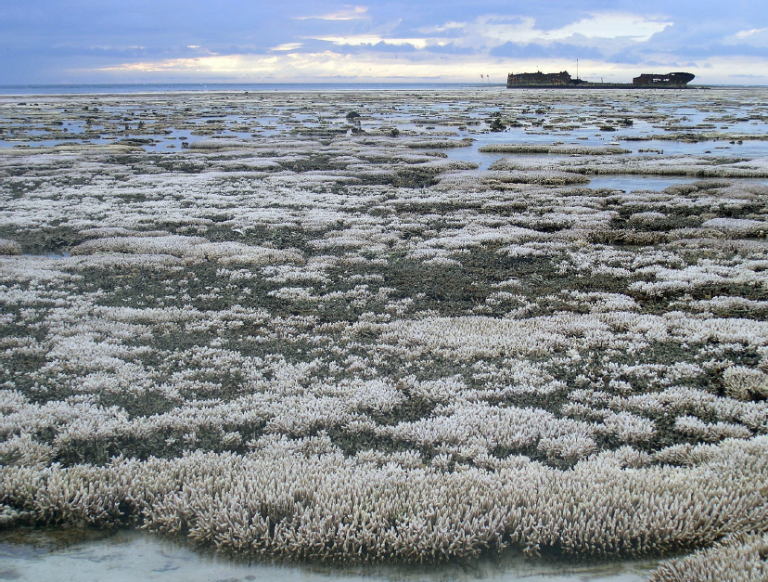
A seminar led by Prof. Peg Rawes (UCL, The Bartlett School of Architecture).
This talk examines human and nonhuman life as 'matters of concern' for contemporary architectural thinking in the year when the UK hosts the UN COP26 in Glasgow. I consider how materialist and ecological histories and theories of life and non-life transform our social and architectural futures. Sometimes at a planetary scale, sometimes minute or invertebrate, sometimes singular and collective, these minor ontologies open up architectural thinking to questions of relation and responsibility.
Image: Photo courtesy of Oregon State University. 2016. Creative Commons Attribution Share Alike 2.0 Generic licence. Location
Woven through the seminars will be engagements with vital sub-questions such as:
Is there any truth to the common claim that ‘there is no case for the arts’; and, if so, how might the arts be transformed to more effectively address pressing global challenges such as climate change?
What are the benefits and limitations of interdisciplinary research on culture and the climate crisis, and what structural changes are required within the academy to facilitate fluent and productive exchanges between arts researchers, activists and scientists?
- What initiatives might arts researchers stage to pressurise governments and corporations to take urgent action against the climate crisis, especially over the next months leading to COP26?
The seminar series will be unique as it will draw together researchers from across the arts to encourage a more coordinated cultural response to the climate crisis, driven by the conviction that efforts to bring about socio-political change are strengthened by alliances. In this vein, the events will highlight that effectively responding to the ecological emergency requires an intersectional lens, or committed engagement with the fact that the environmental crisis is intrinsically connected to problems associated with racial injustice, class division, gender inequality and sexual discrimination. While the programme’s ambitions are principally political, the series will also be epistemologically significant as a challenge to the value of modern disciplinary divisions and a rejection of the separation of the academy and public sphere.
The Cultural Ecology seminar is hosted by Edward Christie.
 Close
Close

